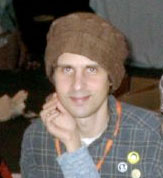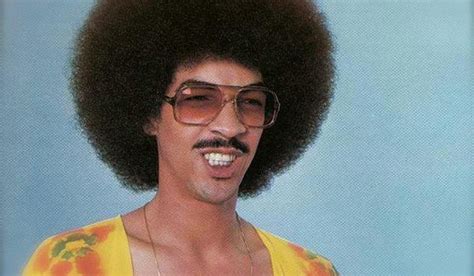A Quote by Shawn Achor
For two minutes a day, think of one positive experience that's occurred during the past 24 hours. Bullet point each detail you can remember. It works, because the brain can't tell the difference between visualization and actual experience. So you've just doubled the most meaningful experience in your brain.
Related Quotes
That's what I like about the idea of the aesthetic experience, the idea of both enjoying looking at works of art and how they kind of talk to you, and also the process of making art, getting back to that idea of the aesthetic experience of making art is very important, It's another way of thinking. Instead of just using your brain, you're using your hands to think with. They're different connections, the brain that comes through the fingertips as opposed that comes through the eyes and ears.
Through my life and my experience, I believe getting "positive mental attitude" is true. Your brain has certain pathways in it, and if you feed those pathways with certain types of thoughts, the blood goes to those neurons and nourishes them, and they grow and develop. That's how you build habits. Physically, I think that's how your brain works. If you have certain habits that are negative and causing you problems that you want to change them, you can actually change the blood flow and stuff in your brain by thinking a different way.
Structurally we should understand that one cannot think that the human brain is different from the brain of the other vertebrates. It is an important question, because we can investigate what is the difference between the brain of a mouse and ours, and of course the difference is enormous, in size and capacity.
I wish reporters were more in tune to the difference between the Asian experience and the Asian-American experience. I think often they lump the two together and think that when I talk about Asian-American narratives that they can cite 'Crouching Tiger, Hidden Dragon' or 'Mulan' as proof of concept when it's a different experience.
Suppose you could be hooked up to a hypothetical 'experience machine' that, for the rest of your life, would stimulate your brain and give you any positive feelings you desire. Most people to whom I offer this imaginary choice refuse the machine. It is not just positive feelings we want: we want to be entitled to our positive feelings.
I think that is what you want to do as a cinemagoer - to experience something fully. Some things don't let you experience them fully. It may be your own preordained prejudice where you can't experience them fully. But when you come out of the cinema having felt, thought, and experienced your way through two hours, that is a really cool thing.
In most sports, your brain and your body will cooperate... But in rock climbing, it is the other way around. Your brain doesn't see the point in climbing upwards. Your brain will tell you to keep as low as possible, to cling to the wall and not get any higher. You have to have your brain persuading your body to do the right movements.
Suppose there were an experience machine that would give you any experience you desired. Superduper neuropsychologists could stimulate your brain so that you would think and feel you were writing a great novel, or making a friend, or reading an interesting book. All the time you would be floating in a tank, with electrodes attached to your brain. Should you plug into this machine for life, preprogramming your life experiences?...Of course, while in the tank you won't know that you're there; you'll think that it's all actually happening...Would you plug in?
The past situation has just occurred and the future situation has not yet manifested itself so there is a gap between the two. This is basically the bardo (life between life) experience. [This is the place where your life is reviewed - where you get another chance to let life teach you and end the cycle of pain. -EM]


































